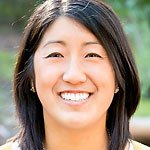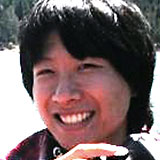
Erina had always measured her worth through her hard work and productivity. Imagine her surprise when God invited her to take a year off to stop and reflect on what He was doing instead.
I have always been a highly productive person.
Having grown up as the daughter of Korean immigrants, productivity wasn’t merely a preference for my family; it was a means of survival. I still remember the ways my dad, who was nicknamed “Mr. Boom Boom” by co-workers for his working style, would find shortcuts to accomplishing as much as possible in the shortest amount of time. Or the magical moments at family gatherings when the women would move from feasting to cleaning, each woman knowing exactly where to be, what to do, and how to break down the party in mere minutes. I recall going for walks with my grandma, who at 80 years still outpaced everyone in our family. And I cringe whenever I think about my sister’s family vacation spreadsheets — her way of making sure our “rest” was as productive as possible.
While this value for productivity was useful in meritocratic environments, such as school, it also fed the toxic belief that my worth was defined by accomplishments. Whether with schoolwork I had to complete, sports teams I participated on, church activities I took part in, or musical endeavors I undertook, I felt the persistent need to grow the “list” of what I was doing. I inwardly celebrated when I had something new to add to my resume and felt useless when my calendar wasn’t filled up. I was much more concerned with what I was doing in life than who I was becoming.
This addiction to activity continued after graduating from college, as I chose to become a full-time minister with InterVarsity Christian Fellowship. Even in the midst of doing “God’s work”, I measured my worth by productivity. Though I tried to remind myself that success isn’t defined by numbers or visible outcomes, I felt the tireless urge to do more, try harder, and accomplish more. I found myself striving to manufacture fruit, rather than allowing God to cultivate organic growth.
I was addicted to productivity.
When I decided in the summer of 2013 to transition out of my role with InterVarsity, I had no idea that God wanted to heal me of this addiction. Initially, I viewed transition as a changing of situation — a chance to leave something I was dissatisfied with and pursue something new. So I carried the old patterns with me, even as I left old circumstances behind.
My addiction to activity got transferred from one arena to the next as I became obsessed with the job search process. Rather than letting transition actually lead to transformation, I tried to speed it up and get it over with. I found myself obsessing over job sites, evaluating different career options, and constructing different configurations of my next season. My calendar, once filled with student meetings and on-campus events, was now filled with hours dedicated to updating my resume, writing cover letters, networking, and searching for interesting organizations.
But after nearly three months, dozens of informational interviews, and zero interviews for full-time jobs, God forced me into a period of reflection and re-evaluation. As He closed doors for me and forced me to slow down, I realized that I had no idea what kind of work I wanted to do, what kind of role I wanted to be in, or what kinds of environments allowed me to thrive. In all my years of being “productive”, I had borne very little awareness of my true self and desires, and God generously created space for a season of personal discovery.
The Lord didn’t want to just change my circumstances. He wanted to change my heart.
Part of this invitation required postponing my job search. While every impulse in me said that I would jeopardize my future if I didn’t find a full-time job, I felt God calling me to wait and to trust Him with my future. He invited me into a year of “transition” in which I could pray, explore, and prepare myself for what was to come. I also spent that year finishing my seminary degree, while working a part-time job as a nanny for supplemental income.
Though I felt confident that this was what God wanted for me, I still dreaded the question, “What are you doing these days?” How could I explain that after working with InterVarsity for nearly a decade, I had transitioned from speaking in front of hundreds of people to changing toddlers’ diapers? Or after holding managerial positions in a parachurch ministry, I would take an unpaid, administrative internship meant for college students? Or that my calendar, once filled-to-the-brim with meetings, was often gapingly empty? I couldn’t help but feel embarrassed with the seeming lack of “productivity” in my life and felt exposed every time somebody asked me what I was “doing”.
As the year continued, I grew more accustomed to my new pace of life and began to realize the importance of waiting. The space in between my “end” with InterVarsity and my “beginning” somewhere else was not an empty one. In that place of waiting, I experienced greater revelation about the gifts, passions, and experiences God had given me. I was able to reflect more on my previous season of life, mourning its losses and celebrating its victories. I had time to cultivate relationships and simply be with people, rather than do things with or for them.
In moments when I felt doubt and angst creeping back in, God led me to the words of Henri Nouwen in “A Spirituality of Waiting”:
“The secret of waiting is the faith that the seed has been planted, that something has begun. Active waiting means to be present fully to the moment, in the conviction that something is happening ... Impatient people are always expecting the real thing to happen somewhere else and therefore want to go elsewhere. The moment is empty. But patient people dare to stay where they are. Patient living means to live actively in the present and wait there.”
In my year of transition, God taught me the art of patient living. He showed me how to be present. He revealed to me that the present is not empty. And He reminded me that even the smallest, most hidden movements of His Spirit have much more power than anything human efforts could produce.
The waiting was not empty.
By making space for prayer, reflection, and exploration, I began realizing my heart’s desires, buried deep from years of prioritizing duty. God revealed my desire to love and serve those on the margins and to see their holistic healing and restoration. He revealed my desire to acknowledge the full humanity of all people, especially those that the rest of society had forgotten. He revealed my desire to mobilize the Church to live out her call to embody God’s justice and mercy in the world. And He revealed my desire to combat the racial inequities shaping our nation’s school-to-prison pipeline.
As God started unearthing these desires, I realized how they all converged in the field of restorative justice. By identifying the limitations of retributive justice and seeking alternatives to the cycles of violence in our society, I was drawn to restorative justice and its emphasis on seeking healing in the face of harm. I received trainings, connected with organizations, and volunteered with both local and global programs that implemented restorative justice in schools and prisons. God opened doors for me to work with a famous Civil Rights lawyer, and to volunteer with a prison ministry in South Africa. Though I had no idea where this pursuit of restorative justice would lead, I was confident that God was birthing something new in me, and that in due time, that life would be fully revealed.
By August 2014, exactly one year after choosing to postpone my job search, I was hired full-time as a restorative justice coordinator in the Berkeley Unified School District. It was the first job I had interviewed for since choosing to wait on God’s timing. It was also a job in the exact field that I had explored, working with a population I was drawn to, in the city I was becoming invested in. This was a role I would never have imagined for myself a year before. But it was a role that I knew was gained by God’s provision, not my own planning.
Getting the job was not the end of my journey. There are still days when I question what I’m doing or struggle with my purpose. But I am grateful that despite what I “lost” on paper due to my year of transition — lines on my resume, a steady income, full-time work — I have gained so much more. I now have a deeper sense of my identity and purpose. I hold a greater attentiveness to my own desires. I enjoy a deepened faith and reliance on God.
Taking time to stop, slow down, and actually sit in transition taught me that true productivity comes only when we learn to wait on God’s work. Sometimes that work is one of fulfillment. Other times that work is one of preparation. But God’s work is never wasted.

Erina Kim-Eubanks is currently the Northern California eld director for Prison Fellowship Ministries, helping mobilize churches to seek restoration for those affected by crime and incarceration. She is passionate about the intersection of racial justice, restorative justice, and criminal justice. She lives in Berkeley, CA, with her husband, Michael.
